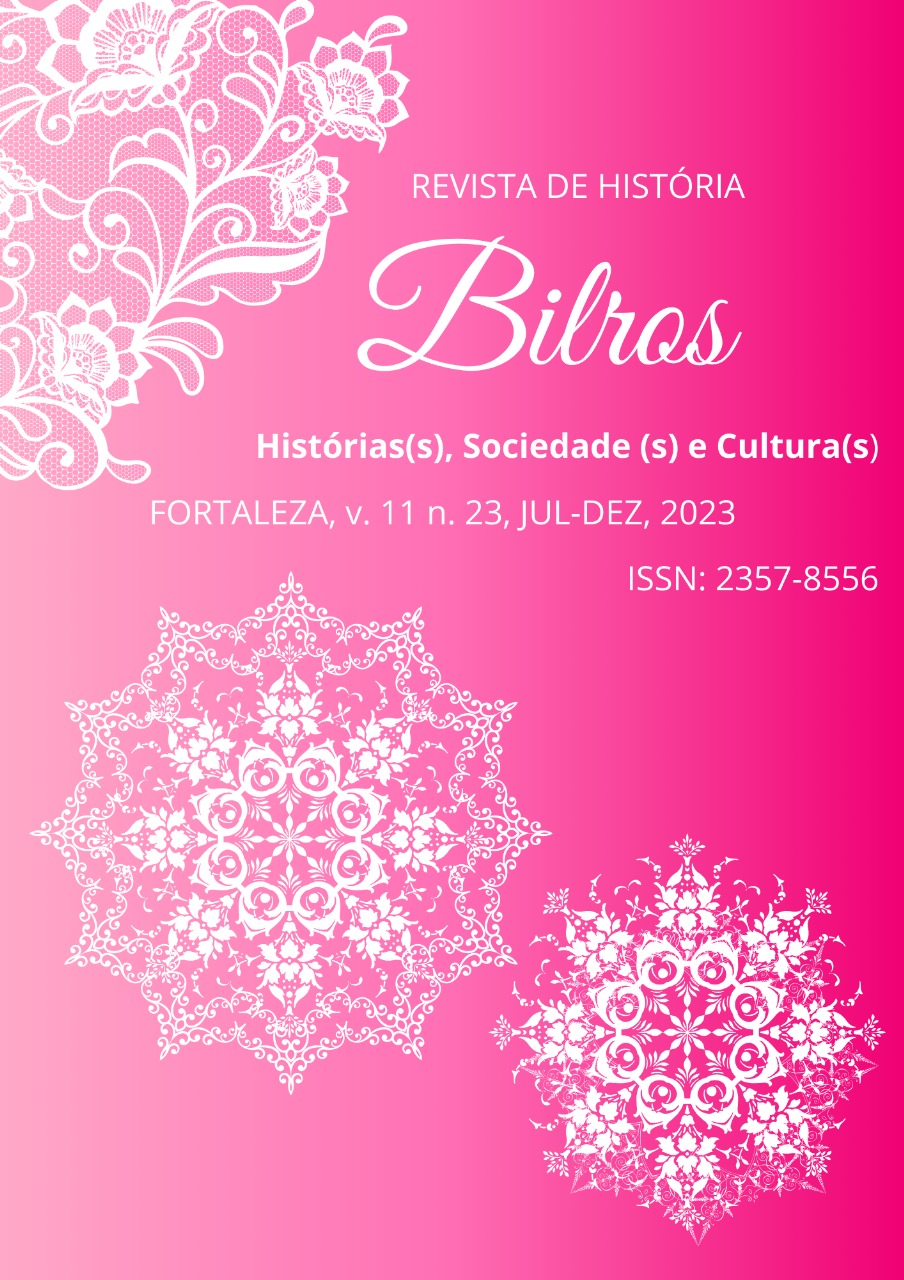“PARA NÃO DIZER QUE NÃO FALEI DAS FLORES”:
AS FESTAS CÍVICAS ESCOLARES COMO ESPAÇO DE REPRESENTAÇÃO DE SABERES E PRÁTICAS EDUCATIVAS EM SERGIPE DURANTE OS ANOS DE 1964 A 1985
DOI:
https://doi.org/10.52521/bilros.v11i23.14145Keywords:
História da Educação, Festas cívicas escolares, Ritos EscolaresAbstract
School civic celebrations as spaces for representing knowledge and educational practices are the object of this research. We analyze the role of the pedagogy of celebrations for students, as well as demonstrate the curricular and political function that civic celebrations for students had during the civil-military dictatorship governments. Thus, we understand that school civic celebrations in Sergipe, between 1964 and 1985, in addition to being moments of fun, were opportunities for the formation of the discipline of students and the community around them. They were propitious occasions for the forging of attitudes and mentalities that were in line with the sociopolitical context of the time, which were also reflected in the school curriculum itself, such as the content taught in the Physical Education discipline. To this end, we conducted historical research through documentary analysis, anchored in the theoretical and methodological assumptions of Cultural History. Through the research, it was possible to verify that the school civic celebrations in Sergipe were operationalized as rituals of celebration and educational formation linked to the curricular contents, forging and presenting to society the way of “educating”, based on discipline and civics. For the research, diverse sources were selected, among which documents such as: laws, newspapers, printed periodicals of local dissemination and photographs stand out. In this way, it was possible to perceive the nature of the celebrations, highlighting the cult of the country, in the face of the parades in celebration of the anniversary of Brazil's independence, as well as the curricular and extracurricular activities linked to the teaching of music and the Spring Games.
References
BOTO, Carlota. A liturgia da escola moderna: saberes, valores, atitudes e exemplos. Revista História da Educação, v.18, n. 44, p. 99-127, 2014.
BURKE, Peter. Testemunho Ocular: história e imagem como evidência histórica. Bauru - SP: EDUSC, 2004.
DANTAS, José Iberê. História de Sergipe: República (1980-2000). Rio de Janeiro: Tempo Brasileiro, 2002.
DE LUCA, Tania. História dos, nos e por meio dos periódicos. In.: PINSKY, Carla Bassanezi (org.). Fontes Históricas. São Paulo: Contexto, 2009, p. 111 – 154.
ESCOLANO, Augustin. A escola como cultura: experiência, memória e arqueologia. Campinas: editora Alínea, 2007.
FARIA FILHO, Luciano M. Dos pardieiros aos palácios: cultura escolar e urbana em Belo Horizonte na Primeira República. Passo Fundo: UFP, 2000.
FARIA FILHO, Luciano M.; VIDAL, D. G. Os tempos e os espaços escolares no processo de institucionalização da escola primária no Brasil. Revista Brasileira de Educação, n. 14, p. 19-34, 2000.
GALEFFL, Dante. O Rigor nas Pesquisas Qualitativas: Uma abordagem Fenomenológica em Chave Transdisciplinar. IN: MACEDO, Roberto Sidnei. Um rigor outro sobre a qualidade na pesquisa qualitativa: educação e ciências humanas. EDUFBA, 2009.p. 13-66.
INÁCIO FILHO; Geraldo e SILVA, Maria Aparecida. Reformas Educacionais durante a primeira República no Brasil (989-190). In: SAVIANI, Dermeval (org) Estado e Políticas Educacionais na História da Educação Brasileira. Vitória: EDUFES, 2010, p 219- 252.
JULIA, D. A cultura escolar como objeto histórico. Revista Brasileira de História da Educação, Campinas, n. 1, p. 9-44, 2001.
LE GOFF, Jacques. A História Nova. Tradução de E. Brandão. São Paulo: Martins Fontes, 1990.
SANTOS, Patricia Batista dos. No garbo de estudantes, na disciplina dos militares: ritos e práticas educativas nas comemorações cívicas escolares no estado de Sergipe (1964-1985). 2023. 184 f. Tese (Doutorado em Educação) - Universidade Tiradentes, Sergipe, 2023.
VALDEMARIN, Vera Teresa. A construção do Objeto de pesquisa. In: SILVA, Marilda da e VALDEMARIN, Vera Teresa (org.). Pesquisa em educação métodos e modos de fazer. [online]. São Paulo: Editora UNESP; São Paulo: Cultura Acadêmica, 2010. p 47-65.
VEIGA, Cynthia Greive. Educação estética para o povo. In: LOPES, Eliane Marta Teixeira; FARIA FILHO, Luciano Mendes; VEIGA, Cynthia Greive. (Org.). 500 anos de educação no Brasil. Belo Horizonte: Autêntica, 2000.
Downloads
Published
How to Cite
Issue
Section
License
Copyright (c) 2024 Patrícia Batista dos Santos, Cristiano Ferronato

This work is licensed under a Creative Commons Attribution 4.0 International License.






